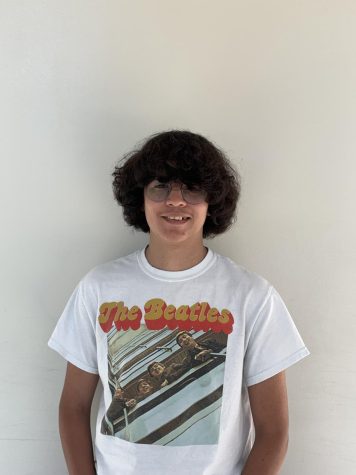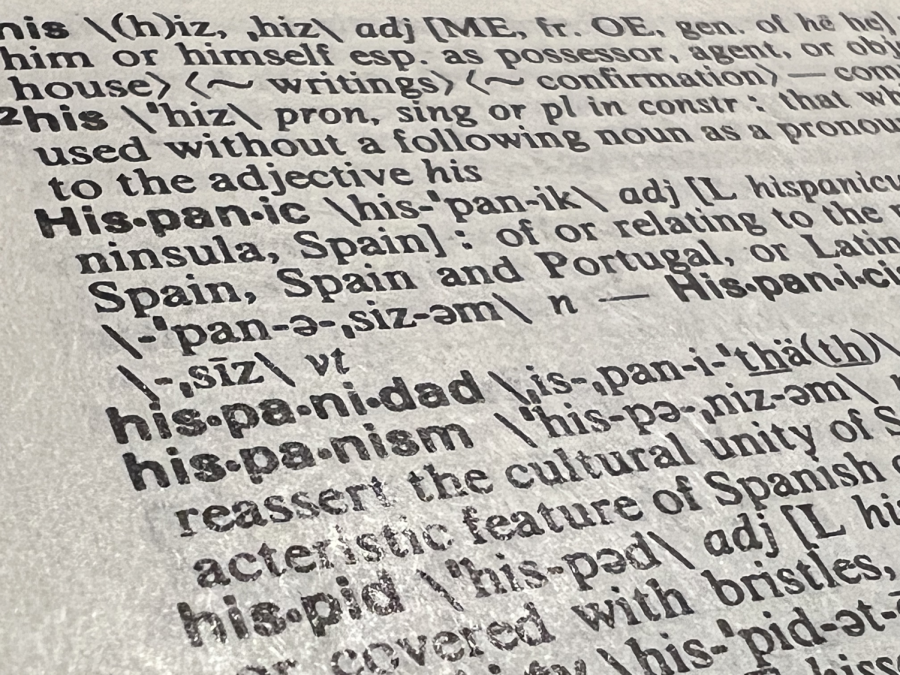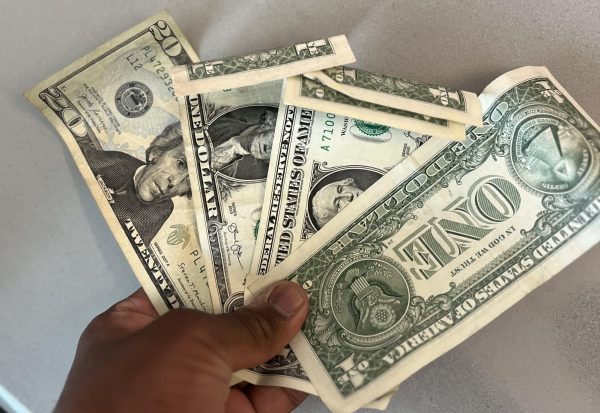Op-Ed: Hispanic and divided
“But you’re not really Hispanic.” “You’re white-washed.” “You haven’t been here as long as we have.”
These are comments we’ve heard spouted at us countless times. They’ve shaped our perception of our heritage for as long as we can remember — leaving us questioning our identity. What does it mean to be Hispanic? What does it mean to be Venezuelan, or Mexican?
Prejudice is harmful towards any group of people. We have both faced personal encounters that have questioned our roots and origins. As Texans, who are also Hispanic, the diverse groups living around us have made us more likely to receive racist stereotypes and harmful jokes which have always been considered normal. Is this what we, as minority Hispanics, have to deal with?

I, Keiner, as a Venezuelan immigrant, having lived here for the better part of the past 8 years, have experienced this prejudice firsthand. Since I’ve been here, I have tried to find small circles of other Hispanics I could relate to. Most of these groups were primarily Mexicans, being the majority Hispanic group in Houston. Being a Venezuelan, I never felt like I truly belonged. They’d bring up Mexican things, and assume they applied to Hispanics as a whole, and shun me when I didn’t understand what they were talking about. Despite my best efforts to fit in, I’d always feel alienated, always questioning my Hispanic identity. I’d be given weird looks when trying to bring up my own culture, and silenced when I voiced my opinions. I even went through a period of trying so hard to fit in that I’d just say I was Mexican to attempt to have Hispanic friends. I eventually grew out of that, learning to embrace my own culture with pride, but there is still that sense of not belonging that continues to plague me.

Belonging has always haunted me. I, Anjali, am bi-racial. My mother is Indian, and my father is Mexican. I proudly identify with both sides of my heritage but I most connect with, and have extensive history with my Mexican side. But being half-Mexican makes me feel like an imposter. When I see Hispanic groups in settings, or at school, there is a part of me that wonders how it feels like to fully identify with a specific heritage. I always felt as if my background both welcomes me, yet splits me apart between two worlds. The first language I ever learned growing up — was Spanish. And now it is the last language I would ever want to speak around Hispanic individuals. Whenever I speak Spanish, or celebrate Mexican culture, it automatically feels like I am dishonoring Mexico as a whole. My identity feels like a fork in the road- and whatever road I take, it never seems to be enough to “fit in.”
So why the divide? There is a substantial amount of Hispanics that affiliate with the GOP in Texas, around 25%. These groups support anit-immigration laws, and proponents of these internal divides.
Hispanics have been synonymous with the U.S. since the inception of this nation. From early American conquests of Mexican lands in the 1800s — to Bracero Programs, to the recent mass influx of Latinos into the U.S., Hispanics have been closely intertwined with the creation of the U.S’s economy and culture.
Since the 1900s, Hispanics (Mexicans being the largest subgroup) have had ties to the United States. The Texas-Mexico border has both shielded and promoted growth to respective regions. Depending on the economic interests of the U.S, there would be periods of mass immigration and Hispanic establishments in the US, and also movements of deportation. This power dynamic has led to a continuous pattern of immigration waves — stemming from perceived economic prosperity, and the “American Dream.”
However, with the movement of people, comes the movement of ideas as well. Perceptions that Hispanics form of each other, all come from different ideologies. In reference to immigration, over 1.6 million migrant encounters were reported by Border Patrol in 2021. However, to get to the U.S, Hispanics must also face a level of prejudice and complex that comes from passing Mexico.
One of the bordering states on the Mexican-American border is Texas. Texas is known for its heavy agriculture roots, and Republican views. An article written by the New York Times, covers the perceptions of Hispanic individuals that have immigrated, and established themselves along the Texas border. Luis Cabrera, an immigrant from Nicaragua, shares his perspective on the new immigrants to the United States: “The people coming now seem to be less willing to work and are more dangerous compared to how it used to be… They want to just come [and] make money the wrong way. They don’t want the American dream.”
Cabrera’s perspective is an example of the reaction of the recent wave of immigrants. November 17-20th of this year, immigrants from Central and South American countries, primarily Venezuelans, have been detained in Mexico whilst on their journey to the U.S. This came about after a deal between the U.S. and Mexico to control the amount of Hispanic migrants crossing the U.S. The detainment of migrants has led to poor living conditions according to an article written by Reuters, “In Oaxaca state, about 12,000 people, largely from Venezuela, were found sleeping on wooden crates, on sidewalks, and in residents’ houses and backyards” Such environments affect the image of smaller Hispanic minorities within the U.S. and Mexico, causing a development of prejudice against these groups.
Historically, divide has plagued Hispanics around the continent. With the initial Spanish colonial system of Castas dividing people by race, to the more recent separations based on national pride, differences have shaped Hispanic culture. It is time to rethink the accepted mentality. Why continue to fight amongst ourselves when there is a system that oppresses us all equally? However different we may be, there is still a common struggle that we must all unite for and deal with together.
It begins with calling out insensitive comments, educating ourselves on the groups that migrate to the United States annually, and accepting there is a problem that must be addressed. The more we diminish Hispanic groups, and believe the facade that they are united, the less unified we become.
Your donation will support the student journalists of Carnegie Vanguard High School. Your contribution will allow us to cover our annual website hosting costs and fund field trips, competition fees, and equipment. We appreciate your support!

Anjali Martinez is a senior at CVHS. She is the Editor-in-chief for the Upstream News. Her favorite pastimes consist of writing poetry and immersing herself...

A sophomore at Carnegie, Keiner moved to the U.S. from Venezuela at the age of 8. He has always had an affinity for the press after spending afternoons...





